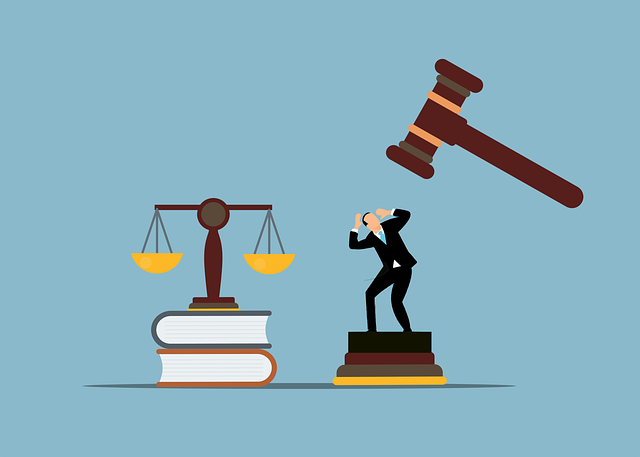C-Level Investigations are comprehensive probes into high-level business misconduct, crucial for resolving partner disputes and upholding corporate integrity. By combining document review, stakeholder interviews, and data analysis, these investigations expose truths fairly, enhancing governance, strengthening relationships, and often leading to successful legal defenses. Early detection of red flags like behavioral shifts or financial irregularities is key; open communication addresses misunderstandings, while specialized legal counsel ensures favorable outcomes in complex commercial litigation. The structured process includes gathering information, interviewing stakeholders, reviewing documents, and conducting fact-finding missions for impartial truth-seeking, culminating in tailored reconciliation or dispute resolution recommendations. Post-investigation, open communication, policy restructuring, national compliance, and strong internal controls rebuild trust and prevent legal issues related to How to Resolve Business Partner Disputes.
In today’s complex business landscape, C-level investigations play a pivotal role in uncovering truth and resolving disputes. This comprehensive guide delves into the intricacies of these investigations, offering valuable insights for organizations navigating critical partnerships. From identifying red flags like financial discrepancies to understanding the investigation process and post-resolution strategies, this article equips readers with essential tools to address and prevent future business partner conflicts, ultimately fostering stronger, more trustworthy relationships. Learn how to resolve business partner disputes effectively.
- Understanding C-Level Investigations: Uncovering the Basics
- Identifying Red Flags: Recognizing Business Partner Disputes
- The Investigation Process: Steps to Resolve Conflicts
- Post-Investigation Strategies: Rebuilding Trust and Partnerships
Understanding C-Level Investigations: Uncovering the Basics
C-Level Investigations refer to high-level inquiries into potential misconduct or wrongdoings involving top executives and business leaders. These investigations are crucial for maintaining corporate integrity and ensuring compliance with legal and ethical standards. When a dispute arises between business partners, understanding how these probes work is essential for resolving such conflicts effectively.
By initiating a C-Level Investigation, companies can uncover the truth behind allegations, protect their reputation, and make informed decisions. This process involves meticulous examination of documents, interviews with stakeholders, and thorough analysis of relevant data. It’s not just about identifying wrongdoings but also ensuring fairness and delivering justice in cases where business partnerships sour. The insights gained from these investigations can lead to better governance practices, stronger relationships, and winning challenging defense verdicts, ultimately fostering a more robust and trustworthy business environment for respective business partners.
Identifying Red Flags: Recognizing Business Partner Disputes
Identifying Red Flags is a critical first step when it comes to How to Resolve Business Partner Disputes. These disputes can range from contractual disagreements to more complex issues like white collar and economic crimes. By staying vigilant, companies can spot potential problems early on. Look for sudden changes in behavior, financial irregularities, or secretive actions among business partners—these could be signs of underlying conflicts.
Regular communication is key. Open and transparent dialogue can often defuse tensions and clarify misunderstandings. However, when disputes escalate, involving legal counsel specializing in complex commercial litigation may be necessary. These professionals have the expertise to navigate across the country and secure winning challenging defense verdicts, ensuring fair resolutions for all parties involved.
The Investigation Process: Steps to Resolve Conflicts
When a C-Level investigation is launched to resolve business partner disputes, it’s crucial to understand the structured process involved. The first step in this process is identifying the core issue(s) driving the conflict, which may stem from misunderstandings, differing goals, or ethical dilemmas. Gathering comprehensive information and conducting transparent interviews are essential to unearth these underlying problems. This phase also involves reviewing relevant documents and contracts to establish a clear context for the dispute.
Once key issues are identified, the investigation team delves into fact-finding missions, meticulously examining evidence and witness statements. This methodical approach aims to avoid indictment while ensuring fairness. By maintaining impartiality, the investigation can uncover the truth without bias, which is vital when serving both corporate and individual clients within the philanthropic and political communities. Subsequent steps include making recommendations for reconciliation or dispute resolution strategies tailored to each unique situation.
Post-Investigation Strategies: Rebuilding Trust and Partnerships
After a thorough C-Level investigation, the focus shifts to rebuilding trust and partnerships within the organization. The first step is open communication, where all parties involved share insights and learnings from the process. This transparency helps in identifying any underlying issues that contributed to the dispute, fostering understanding, and facilitating reconciliation.
Implementing post-investigation strategies involves a multi-faceted approach. It includes restructuring policies and procedures to prevent future conflicts, ensuring compliance across the country, and integrating robust internal controls. By addressing these aspects, businesses can create an environment conducive to long-term partnerships and avoid indictment in legal proceedings related to How to Resolve Business Partner Disputes.
C-level investigations are a vital tool for resolving business partner disputes. By understanding the basics, recognizing red flags, and employing a structured investigation process, organizations can effectively navigate these challenges. Post-investigation strategies focusing on rebuilding trust and partnerships further underscore the importance of this approach. Armed with this knowledge, businesses can ensure their relationships remain strong and healthy, fostering a collaborative environment that drives growth and success.






